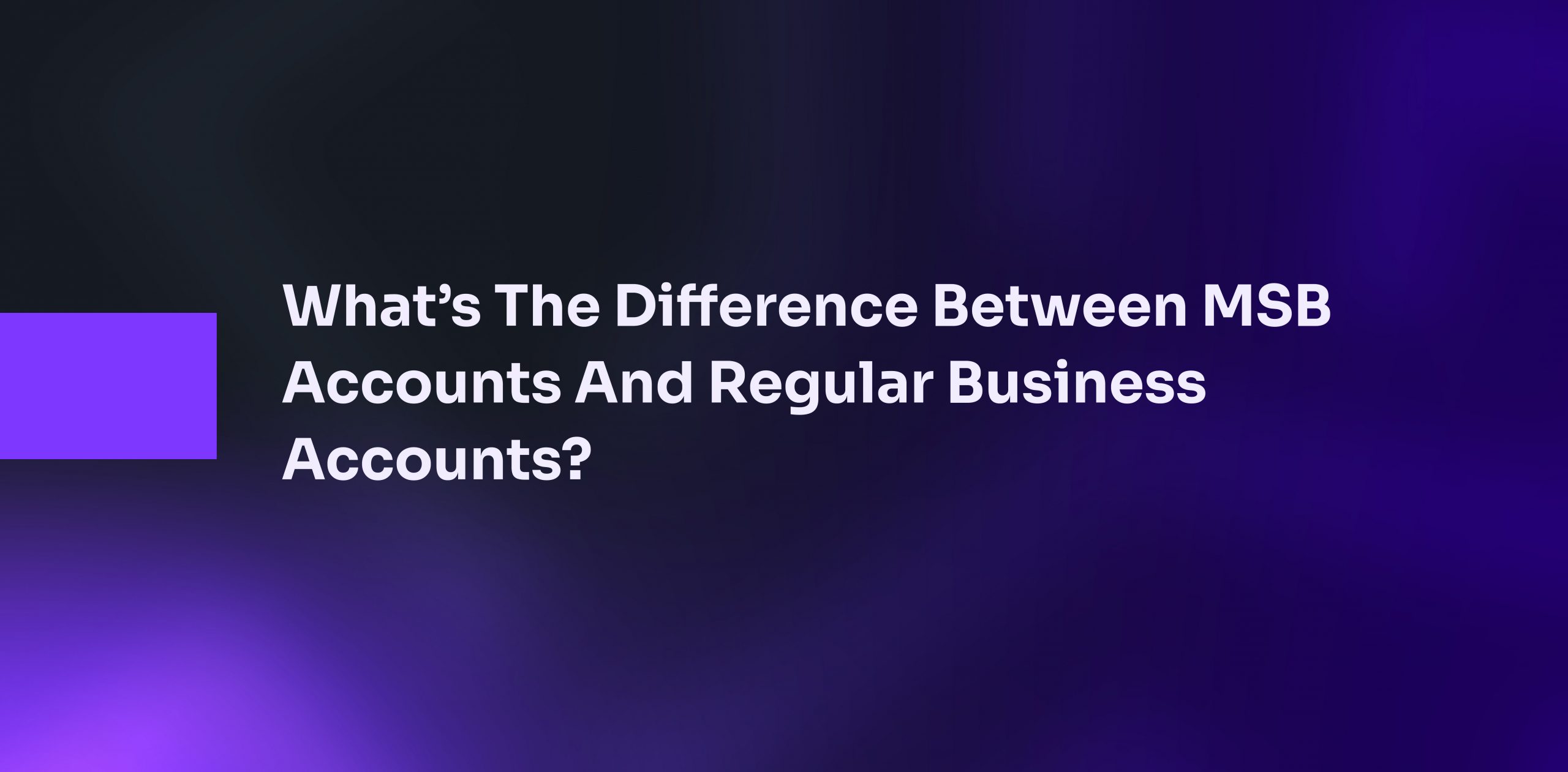As more African fintechs and global-facing businesses go international, the need for compliant, fast, and flexible payment infrastructure becomes urgent. That’s where MSB vs business accounts accounts come in.
But what exactly is an MSB account, and how is it different from a regular business account?
Let’s break it down in simple terms, especially for businesses operating in or serving African markets.
First, What Is an MSB Account?
MSB stands for Money Services Business.
An MSB account is a type of business account created for companies that handle large volumes of cross-border or foreign currency transactions. These accounts are offered to licensed entities (typically fintechs or financial institutions) that engage in services like:
- Currency exchange
- International money transfers
- Issuing or redeeming stored value (e.g., prepaid cards, wallets)
- Payment processing on behalf of others
Think of MSB accounts as banking infrastructure for fintechs and financial platforms, accounts designed to meet stricter compliance, higher transaction volumes, and global payment flows.
What Then Is a Regular Business Account?
A regular business account is what most SMEs or companies open with a bank. It allows you to:
- Receive payments
- Make transfers
- Hold money in a local currency
- Access basic banking services (cards, POS, loans)
However, regular business accounts are often limited when it comes to:
- Receiving or holding foreign currencies like USD, EUR, GBP
- Processing payments on behalf of others (especially if you’re a platform or fintech)
- High-volume or international payment flows
- Seamless API integration for real-time operations
Key Differences Between MSB Vs Business Accounts
| Feature | MSB Account | Regular Business Account |
| Purpose | Designed for licensed fintechs and financial operators | Meant for standard business operations |
| Currencies | Multi-currency (USD, EUR, GBP, CAD) | Often limited to local currency |
| Compliance | Requires MSB license, enhanced KYB/KYC/AML | Basic business verification |
| Use Case | Cross-border payments, wallets, collections, fintech apps | Payroll, vendor payments, invoicing |
| Integration | API-ready for automation | Limited or no API access |
| Settlement Speed | Faster, built for real-time flows | Slower, bank processing times |
| Flexibility | Can issue virtual accounts to end users | No sub-account support |
Who Should Use an MSB Account vs business accounts?
You should consider using an MSB account if:
- You run a fintech platform offering wallets, global collections, or payment processing
- You process payments on behalf of merchants or individuals
- You operate in multiple countries or receive payments in USD, EUR, GBP, CAD
- You need compliance-ready infrastructure with strong security and reporting
Fincra’s MSB Account Advantage
At Fincra, we provide regulated MSB accounts to licensed financial institutions and platforms across Africa. Our MSB offering includes:
- Named virtual business accounts in USD, EUR, GBP, and CAD
- Fast settlement and low-cost processing
- Full KYB/KYC/AML compliance infrastructure
- Seamless API integration for automation
- Support for Banking-as-a-Service (BaaS) and embedded finance
Whether you’re building a fintech app, collecting payments globally, or managing merchant flows Fincra helps you operate compliantly and efficiently.
Conclusion: Choose the Right Account for the Right Use Case
A regular business account might work for everyday operations. But if your business deals with global payments, fintech services, or regulated flows, an MSB account gives you the control, flexibility, and compliance you need.
New to this space?
You might want to start with this helpful read, If you’re just starting out and wondering how multi currency business accounts work for African businesses, check out our guide:
👉🏽 What Is a Multicurrency Business Account, and How Does It Work?



